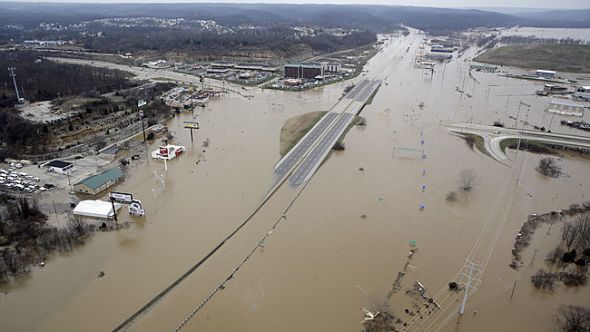An announcement from FEMA went out this week reminding home owners of the significance of flood insurance. However it is unlikely anyone in the St. Augustine area needs the reminder. With significant flood damage in the last two hurricane seasons, there shouldn’t be many residents who fail to comprehend the possibility of losses as a result of flood.

Flood insurance runs out once again on Jan. 19 – or not
What they may well not realize is the precarious state of the National Flood Insurance Program (NFIP).
Shortly before Christmas, the program received another short-term extension through Jan. 19. A comparable extension was set to expire Dec. 22.
What that means is people who want flood insurance – as well as those required to obtain it by their lender – can currently obtain it.
As Doug Wiles of Herbie Wiles Insurance in St. Augustine said, “For right now, it’s status quo.”
But those involved with the insurance and real estate businesses are wondering when a long-term decision will most likely be made on the future of the program.
The latest damage from Hurricane Irma underscored the significance of the program along with the possibility of huge payouts that may threaten its solvency. As of Dec. 26, FEMA reported that more than 27,690 NFIP claims for damage from Irma were actually filed and that about 80% of those are closed. In excess of $609 million has actually been paid to policyholders.
Even the FEMA website acknowledged the necessity to develop a plan to keep the program viable.
As the FEMA website states: “As affected communities begin recovering from the devastating impacts of Hurricanes Harvey, Irma and Maria, a timely, multi-year re-authorization is critical for insured survivors and businesses. NFIP policyholders need confidence not only that FEMA can pay flood insurance claims, but also that it will have the ability to sell and renew policies to help them protect against future flooding.”
Dan Alexander, vice president of Thompson Baker in St. Augustine, said companies are still issuing policies through NFIP, which happens to be beneficial for customers. Without NFIP, there are alternatives for some buyers but not everyone.
“There are some private companies that will write coverage, so long as a property qualifies,” Alexander said in an email to The Record. “However, most will not write if there has been a prior loss. This could make a number of properties ineligible due to the effects from Matthew and Irma.”
FEMA is urging home owners to purchase flood insurance this year with a reminder that policies will not go into effect until 30 days after purchase.
Floods might possibly be the most commonly encountered and costly natural disasters in the United States, FEMA notes. While there are in excess of 1.7 million NFIP policies in force in the state, about 50% of Florida homeowners inside Special Flood Hazard Areas had insurance against flooding before Irma made landfall on Sept. 10.
Almost 25% of flood insurance claims originate from low-to-moderate risk areas, and in addition they receive one-third of all federal disaster assistance for flooding, FEMA said in a release.
Have a questions or concern? Nick & Cindy Davis with RE/MAX Premier Group are here to assist you. We are always a just a click here away or call 813-300-7116